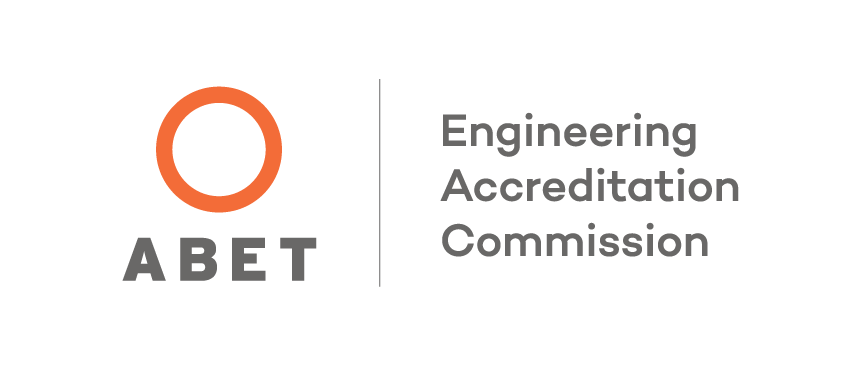What is ABET?
ABET is an organization that accredits college and university programs in the disciplines of applied science, computing, engineering, and engineering technology.

The undergraduate program BS in Petroleum Engineering is accredited by the Engineering Accreditation Commission (EAC) of ABET, https://www.abet.org, under the General Criteria and the Petroleum Engineering Program Criteria.
Program Educational Objectives:
Program educational objectives are broad statements that describe the career and professional accomplishments that the program prepares its graduates to achieve within a few years after graduation.
The present educational objectives of the BS in Petroleum Engineering program at KFUPM are to graduate engineers who, within a few years of graduation, will have
- established careers in petroleum engineering and related geosciences that enable them to compete, collaborate, and lead in the global energy industry,
- been engaging in professional and technical development through life-long learning, and
- served society by adhering to the principles of professional ethics and sustainability, including social responsibilities, economic development, health, safety, and environment.
Student Outcomes:
Student outcomes are narrower statements that describe what the students are expected to know and be able to do by the time of graduation. These relate to the skills, knowledge, and behaviors that the students acquire in their matriculation through the program. Upon completion of the BS in Petroleum Engineering program, the graduate would have attained the following:
- An ability to identify, formulate, and solve complex engineering problems by applying principles of engineering, science, and mathematics.
- An ability to apply engineering design to produce solutions that meet specified needs with consideration of public health, safety, and welfare, as well as global, cultural, social, environmental, and economic factors.
- An ability to communicate effectively with a range of audiences.
- An ability to recognize ethical and professional responsibilities in engineering situations and make informed judgments, which must consider the impact of engineering solutions in global, economic, environmental, and societal contexts.
- An ability to function effectively on a team whose members together provide leadership, create a collaborative and inclusive environment, establish goals, plan tasks, and meet objectives.
- An ability to develop and conduct appropriate experimentation, analyze and interpret data, and use engineering judgment to draw conclusions.
- An ability to acquire and apply new knowledge as needed, using appropriate learning strategies.
Annual Student Enrollment & Graduation Data:
The student enrollment and graduation statistics for the BS in Petroleum Engineering program are:
| Fall | Spring | Summer | Fall | Spring | Summer | Fall | Spring | Summer | Fall | Spring | Summer | Fall | |||||||||||||
|---|---|---|---|---|---|---|---|---|---|---|---|---|---|---|---|---|---|---|---|---|---|---|---|---|---|
| 2015 | 2016 | 2016 | 2016 | 2017 | 2017 | 2017 | 2018 | 2018 | 2018 | 2019 | 2019 | 2019 | |||||||||||||
| E | G | E | G | E | G | E | G | E | G | E | G | E | G | E | G | E | G | E | G | E | G | E | G | E | G |
| 173 | 4 | 158 | 22 | 117 | 0 | 157 | 7 | 145 | 18 | 117 | 1 | 185 | 3 | 174 | 29 | 144 | 3 | 204 | 11 | 187 | 39 | 147 | 2 | 201 | 7 |
| Spring | Summer | Fall | Spring | Summer | Fall | Spring | Summer | Fall | |||||||||
|---|---|---|---|---|---|---|---|---|---|---|---|---|---|---|---|---|---|
| 2020 | 2020 | 2020 | 2021 | 2021 | 2021 | 2022 | 2022 | 2022 | |||||||||
| E | G | E | G | E | G | E | G | E | G | E | G | E | G | E | G | E | G |
| 192 | 13 | 129 | 2 | 271 | 3 | 269 | 33 | 250 | 6 | 359 | 7 | 360 | 39 | 326 | 4 | 395 | 13* |
E: Enrolled G: Graduated *expected
Program Assessment Coordinator: Dr. Saad F. Alafnan.
